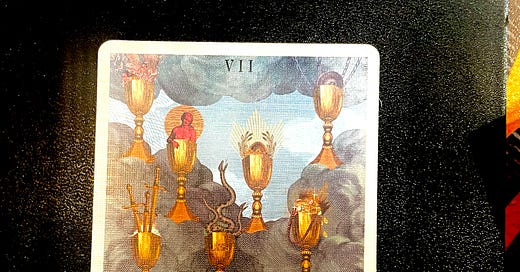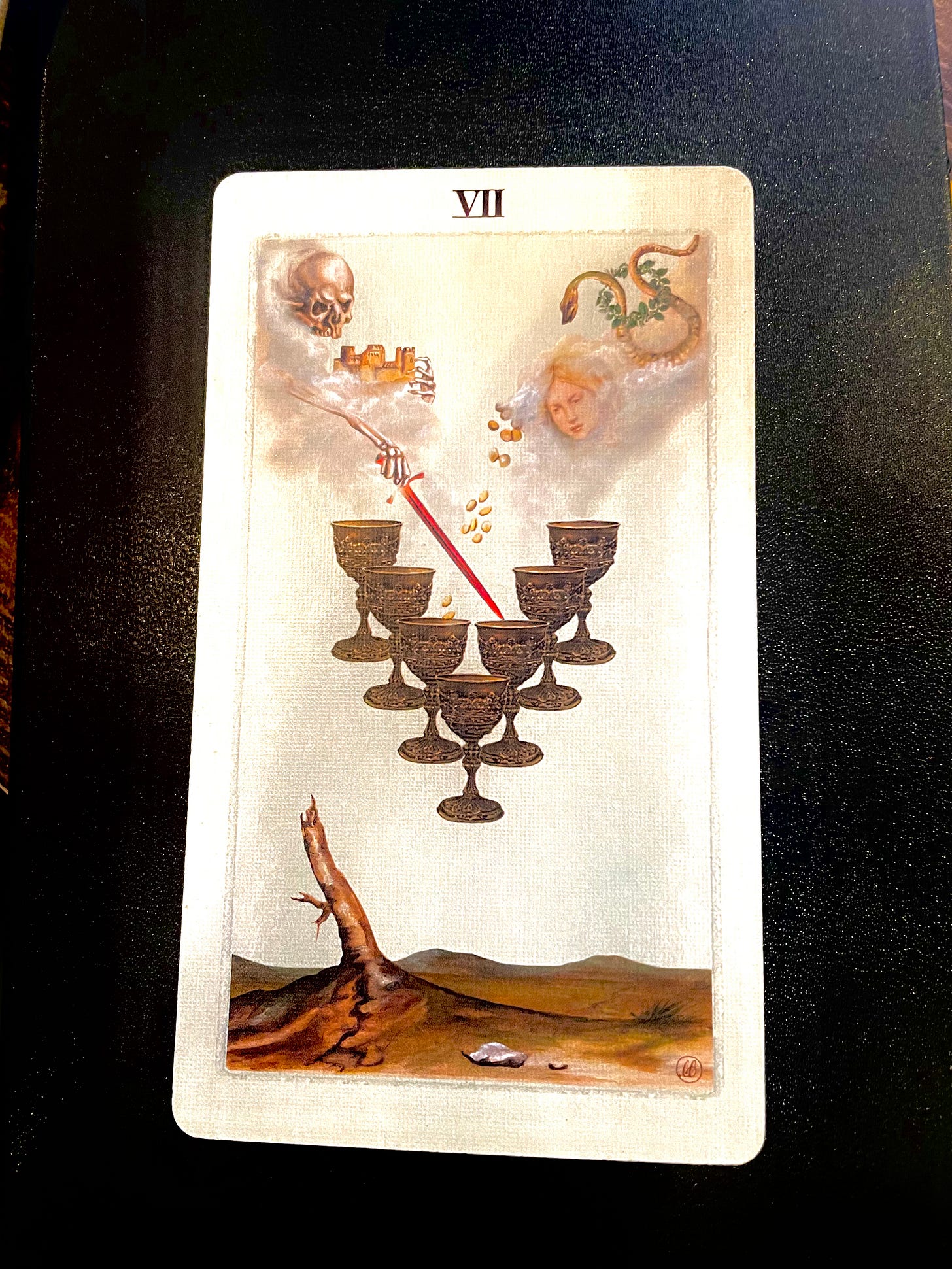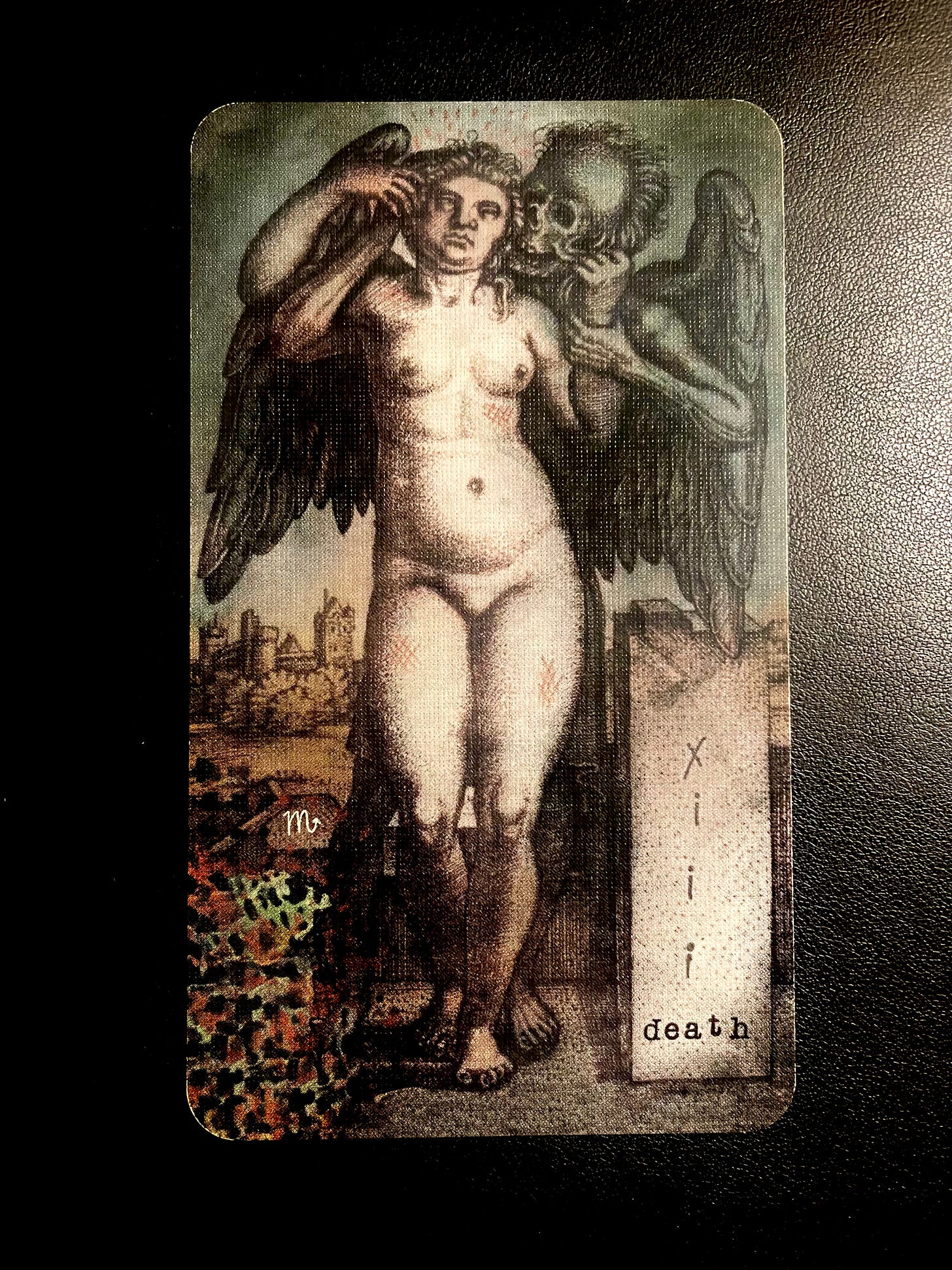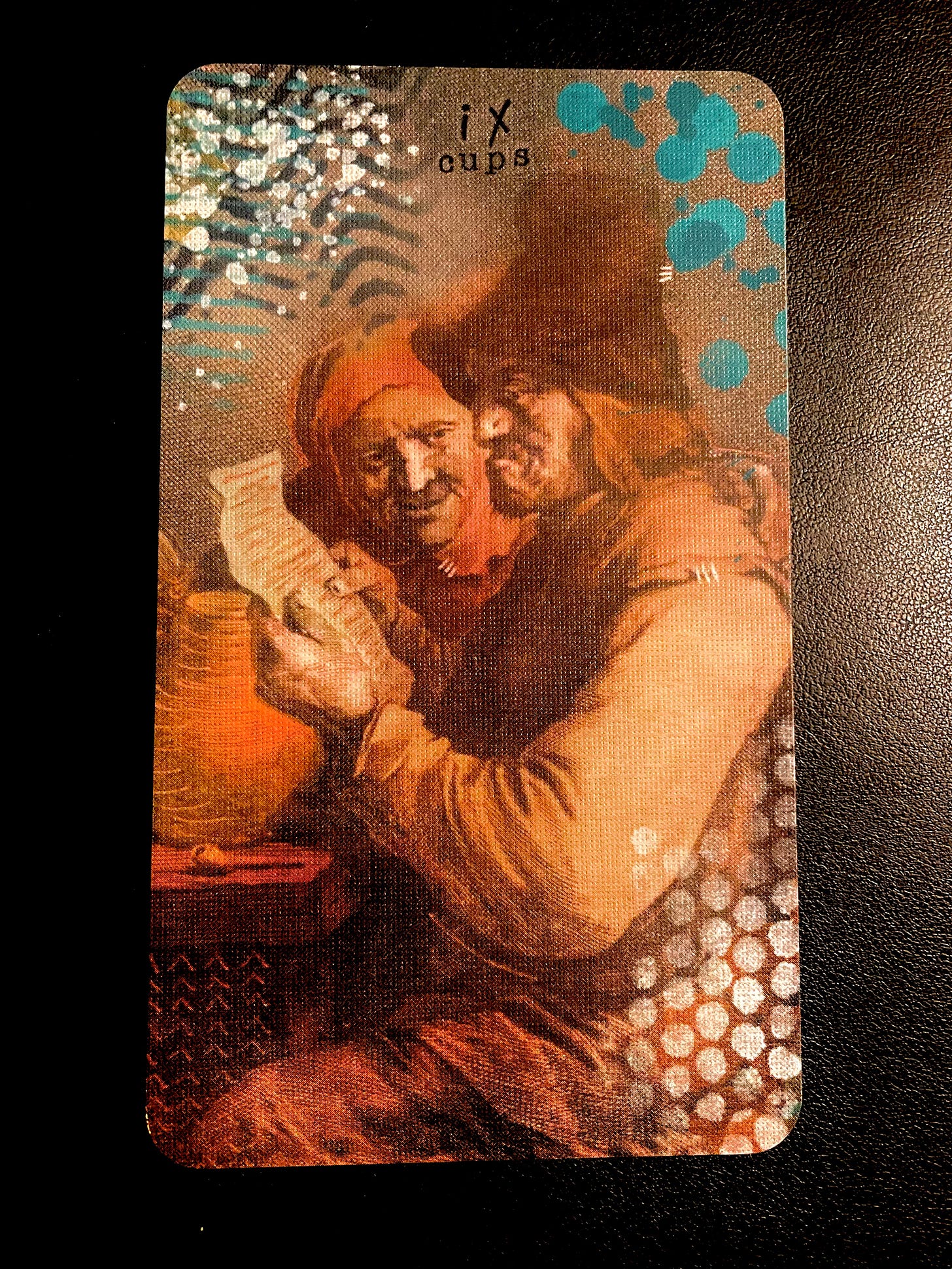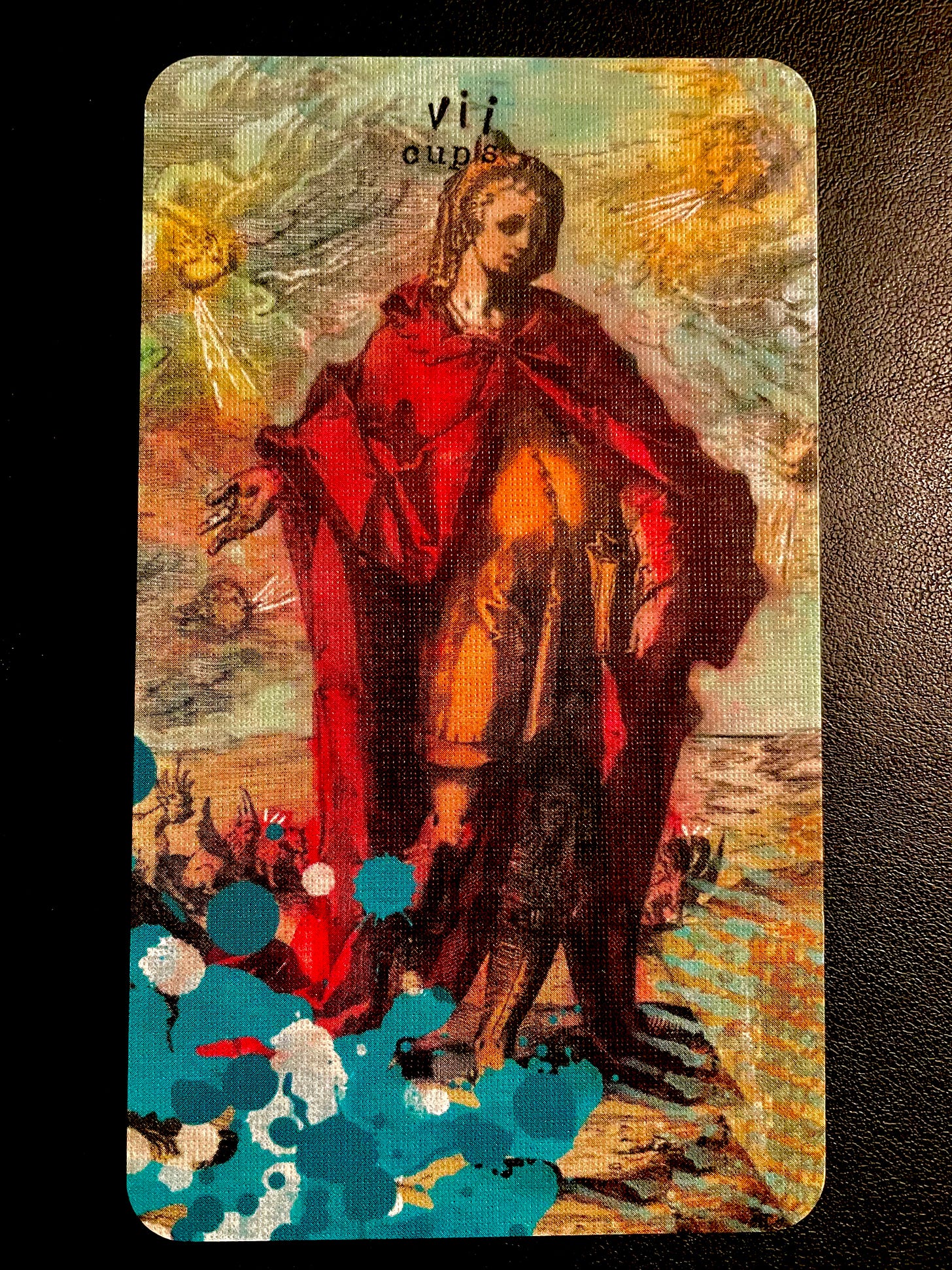Updates:
June astro / tarot readings
"Love is never any better than the lover. Wicked people love wickedly, violent people love violently, weak people love weakly, stupid people love stupidly, but the love of a free man is never safe. There is no gift for the beloved. The lover alone possesses his gift of love. The loved one is shorn, neutralized, frozen in the glare of the lover's inward eye"
Toni Morrison, the Bluest Eye, 206
The lover needs practice loving. So she attempts to love all she longs for. Love as a language has become bankrupt or so it seems. Its overstatement and undermining has made us all anesthetized to the word but yet we still search for a new way to say I love you.
Morrison says that love is no better than the lover.
A fixed and fallen Venus has a hard time flowing freely with the beloved’s ever dying, ever-transforming expression. So her beloved is static, frozen, incapacitated if not immobilized by the obscured lover. She must be the dark Venus that sheds form from substance. She is the nightshade. She unfixes desire. Hers is the Seven of Cups card of the Corvus. We see in her image, a phantasmic flurry. Fantasies, lusts and longings overwhelm the frame but focused in a sphere is her open hand. The power rests within her dark hands, for here she is actively choosing the expression of love.
By the laying of hands, love materializes. Hands are the preeminent site of intimacy. Hands that bless and heal are imprinted with care and compassion. This Venus expresses an openness to the transient presence. They are in a gesture of receiving spirited assistance, inner aid. This is a midwife navigating the medial realms.
Mesmerized by the objects of desire, she must realize herself the snake-charmer before the cobra consumes her whole.
She is familiar with other’s desire forced upon her. Prurience is projected upon her. And it’s a force that descends, a desire that depresses as it obsesses the beholden and transfixed voyeur.
In Scorpio, Venus’ love is anything but thin. The manifestation of its depth is haunting. Desire is cryptic because it can’t be contained. The potent fullness of this love-force is withheld. Their beauty means much by saying so little. It’s never simple or sure that the love sought shall take shape. Love is not merely an emotion, it’s a movement, a motion, a touch. The materiality of love is as a verb, not a noun. One does love, or they don’t. Venus in Scorpio is martial. The beloved must bleed.
It all too soluble otherwise. Venus in Scorpio finds that love is a measure of dosage. Too much or too little is a poison and just right is never about settling into a permanent state.
Venus in Scorpio wants a fleshly we. One that weeps, laughs, and dances. One that redeems devastation. Again notice that the shadowed lover has their hand outstretched. A lover never lets go. Death doesn’t stop love. But when it obsesses the beloved, the free love is never safe. The lengths this lover goes to are morally suspect. Venus in Scorpio is where we bury lovers. Gardens grow from their graves in due time. Taurus tell us that much for sure.
I envy that public love that is more indicative by the quiet gestures than concealed emotions can say.
I try not to be overdetermined by the beloved. Overshadowed by desire, overwhelmed by eros, overcome by the lover’s absence present everywhere.
Love and death have a seamless connection in this gesture. Love will kill you, but likewise it will heal the heart. Her beauty belies her poison.
She dies and kills of hunger. She is eager and insatiable. She is willing to fill her soul and stomach with anything that’ll sustain. But all but the beloved is barren.
The Death arcana comprises the five - seven of the cups cards. From the Five of cups grief, it’s a brief postmortem reverie between the Six and Seven of Cups. That the moment of ecstasy in finally recognizing love’s power comes only in death, should tell us death is an angel. Approach it for emotional clarity. Allow the dying to unlock your most intimate truth.
She maintains relations with the dead. She shares her flesh with the fallen. She lets her form be filled with more than memories of the beloved. They are real presences within her, stirring deeply within her. Death does very little to keep apart our intimate relations. Sometimes we love better, freer and more openly, more easily the dead than we do the living. Their spectral presence is everywhere and nowhere.
The card is the phantom portrait. It’s an entry in which she is actively looking for love. These icons of sentiment show diamonds and pearls, castles and crowns, serpents, busts and veiled brides. They show she is imprinted with a hope culturally conditioned for the riches, and the property show a commodification of the dream lover’s dreams.
So the bereaved deal with the material consequences from their beloved’s death. The Venus in this card is questioning who is the inheritor of their prized possessions, properties, gifts and goods? What can we choose of the lover’s lingering material remnants? What to cherish, bury or trash?
"The process of will making operated in a context in which the transfer of property was interpreted as a communicative event: the giving of gifts made statements about past, present, and future relationships and was, therefore, implicated in the reproduction of relationships beyond the grave"1
The Seven of Cups is as the last will and testament because both comment on prior relationships while also bespeaking further connectivity. They are a site for displaying identity by displaying desire. The one who claims the inheritance has been chosen by the dead; they have manifest markers of their lovers affection, loyalty, and enduring connection. In antiquity the transfer of power was signified by the exchange of rings. Who wouldn’t welcome a diamond of love to be held on her hand? Beyond receiving wealth it displays the position of ongoing affection. Then these hands must not be useless. They must exercise the power of compassion. They must undo the knots that bind her wrists. Where we write the word is made material. This love must be literate. They must know who is named.
Because the actually inheritance is the Nine of Cups and so she must see through shadows, dreams and desires to get to something of substance.
There are a myriad inscription of the self upon each uplifted aspiration. Let each believe the reference is to herself.
Will she receive a love, being so deprived and so desperately hungry, that brings financial and socio-political gain? Will her suitor share power and capital?
We can commune and keep talking after death by what we read and what we write. A handwritten will extends the relationship between body, self and text toward love and the other, the inheritor. This love word inaugurates action. It’s not a hallmark sentiment.
Morrison as an author is like the Seven of Cups, simultaneously foregrounding and withholding love. Something of love is thus illustrated, that is the power of love’s embodiment. In the midst of a geography, a relational history of pain, suffering, abuse, murder, betrayal, love is not an identifiable emotion. Where and what exactly is love’s countenance? Its more than an empty-minded wish, it’s syllable, sound and sense.
Damaged, dying people reach out to grasp and hold onto each other. Their touch is tactile across time, in intimate forms of connection between lover and beloved, card and querent, writer and reader. It is this reaching, this holding that engenders the practice of love.
To find love’s expressed form, look, look, look where hands are.
-C
Hallam, E., & Hockey, J. (2001). Death, Memory and Material Culture. Routledge.


